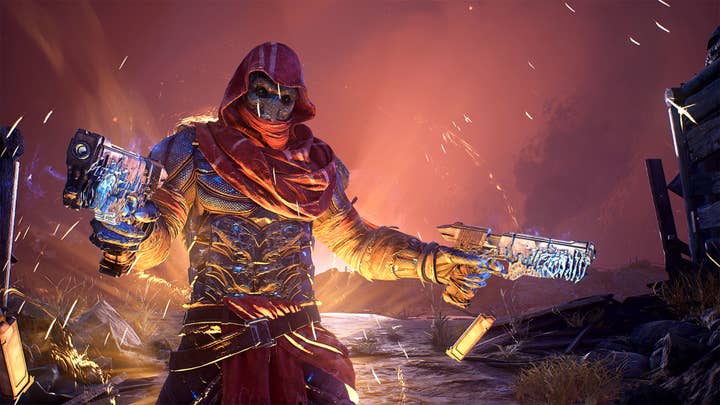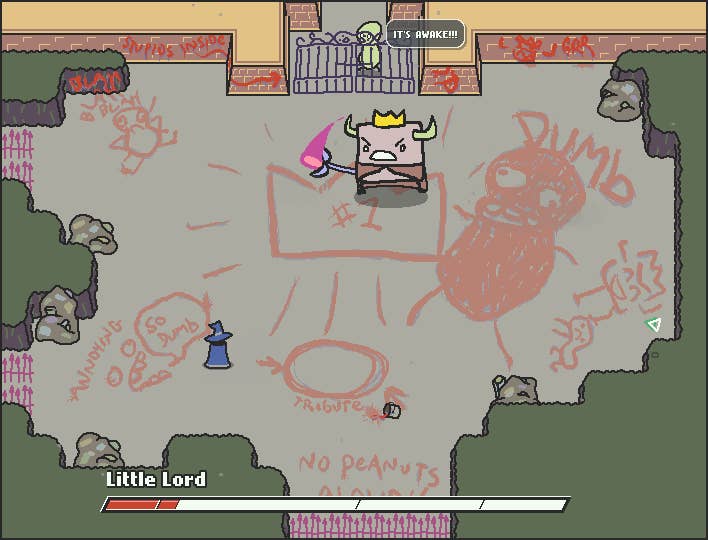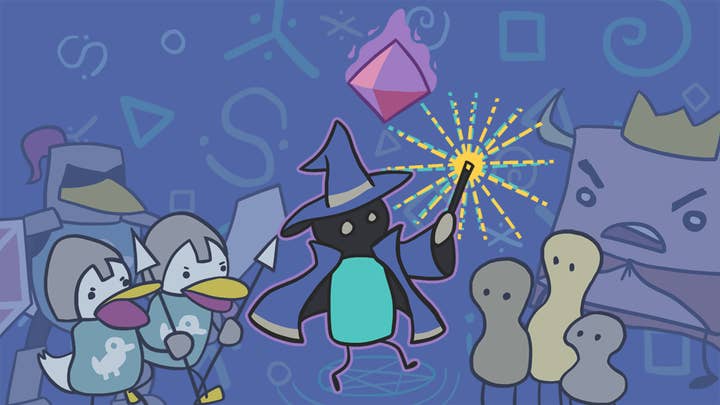Lopsided contracts remain a fact of life for developers | Opinion
Innovation in funding, distribution and market access has changed the industry's power dynamics - but many devs still find themselves signing contracts that are far from ideal
In any creative industry you care to mention, there exists a dramatic power differential between the creative individuals or companies who actually make the industry's products, and the businesses which provide the finance, licensing, distribution and market access muscle for those products.
In best-case scenarios -- which are more commonplace than many people pessimistically assume -- that power imbalance is leveraged in a collaborative relationship between the two sides, with the publisher using its financial and market clout to smooth the path for its creative partners' success. When that happens, though, you don't often hear about it; it's how things are meant to work, ideally, and rarely merits more than a quick bit of lip service in interviews about how great publisher X or label Y was to work with.
There are cases where the developer's desperation to avoid having to write off their sunk costs will result in them signing a much less advantageous contract
When things go wrong, though, they tend to go wrong in far more interesting ways; all happy families are alike, while every unhappy family is unhappy in its own way, and it's the latter that make for the more interesting stories. Those stories imprint on us; we end up with a default view of the relationship between a band and their label, a development studio and their publisher, or a movie director and their studio that's informed by all the stories of exploitative, lopsided or downright abusive relationships we've read through the years.
In the games industry, in theory at least, things are meant to be getting better. For decades we've seen progress across a number of fronts aiming to bring down the bars to entry and reduce or remove the gatekeeping power of publishers and platform holders. From digital distribution to crowdfunding, from the proliferation of more comprehensive and accessible middleware and engines to the possibilities of early access, and from the embrace of indie titles by console platform holders to the appearance of entirely new platforms like mobile, there have been a number of seismic shifts in the structures of and surrounding the games industry in the past two decades which have generally been seen as rebalancing the power differential between developers and publishers.
And yet; just this week, we saw developer People Can Fly admit that not only is it yet to earn any royalties from Outriders -- a game publisher Square Enix described as being so successful it would be its next major franchise -- but that it doesn't even have any details or information on its own game's sales or revenues.
Meanwhile, Jakefriend -- the developer behind crowdfunded indie title Scrabdackle -- revealed details of a contract to publish the game which he had turned down -- despite the CA$500,000 in funding it would have provided -- due to some extraordinarily exploitative clauses which, at the whim of the publisher, could have seen the developer not only lose the rights to the game itself, but actually end up owing the publisher money in excess even of the funding amount itself.

A slew of other developers chipped in on Twitter to note that while the contract Jakefriend was offered was notable for featuring quite so many red flags all at once, it's pretty much standard practice for contracts offered to indie developers to feature at least a few of the problematic clauses he noted.
These are two examples from very opposite ends of the industry spectrum -- one might understand small indies with (usually) limited experience being soft targets for sharp practice in terms of legal contracts and obligations, but People Can Fly is a well-established and experienced studio, and that doesn't seem to have insulated itself from ending up in what appears to be a somewhat tense situation with its publisher over royalties and data visibility.
The same tools that give developers some independence from publishing can often leave the same developers in very weak negotiating positions
There are all sorts of problems that this highlights -- the creeping adoption of "Hollywood accounting" by the games industry (moving costs and liabilities around to keep games unprofitable on paper, thus avoiding various contract conditions being met and royalties being paid), for example, or the moral hazard that's created by publishing contracts which both create tantalising financial rewards for the publisher if the developer breaches the contract (up to and including taking ownership of the developer's IP itself) and also put the power to precipitate and judge breach of contract largely in the publisher's hands.
The hand-waving solution that's presented to these issues is always the same; "oh, developers have to be careful about legal stuff", and some sage words about the value of hiring a lawyer -- but there's a more troubling reality that really ought to be addressed more often. The fact is that a lot of developers who do have their heads screwed on about legal stuff still end up trapped in these kinds of contract -- not because they didn't see the problems in the terms, but because even despite their knowledge and experience, they were forced into situations where they saw little choice but to sign contracts they knew were exploitative and far from ideal.
How has this happened, even after twenty years of innovative new ways to fund, promote, sell and monetise games that were meant to redress this power imbalance? In theory, the modern industry should have a more equitable balance of power between publishers and developers -- indeed, the introduction of things like digital distribution, mobile games and crowdfunding platforms led some people to openly wonder if we'd even need publishers at all for anything beyond the licensed-IP AAA sector.
In practice, though, some of those things have backfired in unexpected ways. While taken cumulatively they have given us a booming (if high-risk) indie sector and a much more diverse industry than before, they are not an unallayed good -- and the same tools that give developers some independence from publishing can often leave the same developers in very weak negotiating positions.

Funding is a big part of the puzzle, with crowdfunding in particular being a very mixed bag for developers. The positives are clear: it's helped to get a lot of games off the ground, and it provides both a source of revenue that's independent of publishers and a significant word-of-mouth boost to the game's marketing right from the outset. However, most crowdfunding campaigns -- even most of the high profile, successful ones -- provide enough funding for a well-fleshed out prototype or an alpha build, not a fully completed and polished title.
Many developers, even very experienced ones, have underestimated the amount required to to get the game to that point and over the finish line, with over-ambitious stretch goals often causing particularly thorny problems (launching console versions is a major culprit here). It's very common for crowdfunded games to end up needing a publisher to fund them to completion -- and despite the injection of cash crowdfunding provided at the outset, those developers often find themselves in incredibly weak negotiating positions once they start dealing with publishers.
Developers often take on significant financial risk before they get in front of a publisher -- and that's a fact that doesn't escape the publisher's notice
That's not least because they've already effectively sold copies of the unfinished game to their most hardcore fans (and spent the resulting revenue); this makes the developer desperate to do whatever is required to fulfil that promise, of course, but makes publishers (not entirely unreasonably) keen to get the maximum possible share of whatever early revenues will come from post-launch sales, as they've already missed out on the lowest-hanging fruit. Painfully small royalty shares for developers until the publisher's costs are covered are a common outcome of those negotiations, with publishers often taking a full 100% of revenues until a pretty high sales bar is achieved.
Crowdfunding is the most high-profile example of a funding method that can leave its recipients in a weaker negotiating position than they might expect, but a similar dynamic can come into play with other forms of funding. Even beyond the likes of Kickstarter, there's been a pretty major diversification in recent years in the ways that developers can fund their projects without having to turn to a publisher early in the process. Where once developers were pitched very early ideas to publishers, it's increasingly common for them to get quite a long way into a project off the back of another funding source -- so that when they do finally approach a publisher, it's with a game that's already well into development, in theory putting the developer into a stronger negotiating position (especially with regard to being able to retain ownership of the IP).
The flip side of this, however, is that it often means developers have taken on a significant financial risk by the time they get in front of a publisher -- and that's a fact that doesn't escape the publisher's notice. In the past, games would be pitched to publishers largely as a concept, perhaps with some prototyping work done, and while a rejected pitch was never a welcome affair, the studio could quickly go back to the drawing board.
By contrast, a developer with significant sunk costs in a game has a much greater need to get a publishing deal -- even one that isn't an ideal deal or a contract they're especially happy with. While in some cases self-funding a project in its early stages can pay off with a much better deal -- especially if the game attracts attention from multiple publishers who compete to sign it -- there are other cases where the developer's desperation to avoid having to write off their sunk costs will result in them signing a much less advantageous contract.
I should clarify that these are generalities -- I have no insight or knowledge about the financial circumstances in which People Can Fly or Jakefriend ended up sitting down to their negotiations with publishers -- but they're situations I've heard of on multiple occasions, and they complicate the sometimes over-rosy picture that's painted with regard to how business innovations have reshaped developer-publisher relations in recent years.
The diversification of funding methods for game development has by and large been posititve, but unless handled carefully it can have quite a sting in the tail -- ultimately affecting the balance of power between developer and publisher in quite the opposite way from what was hoped.

